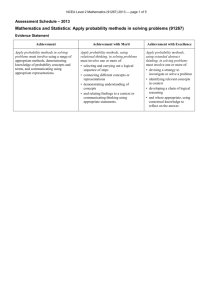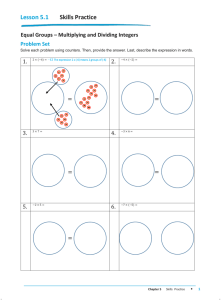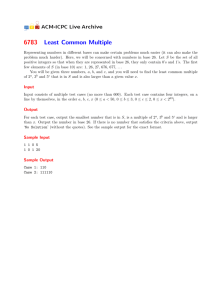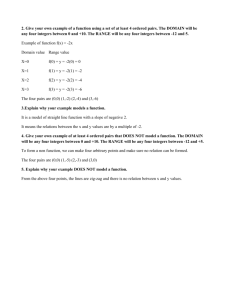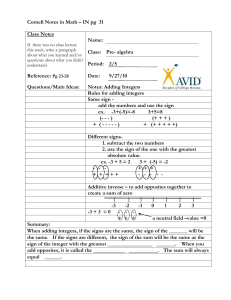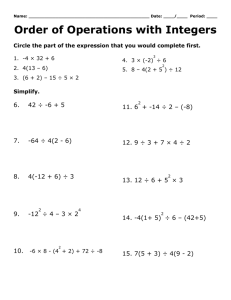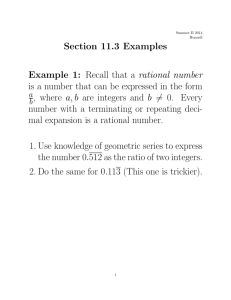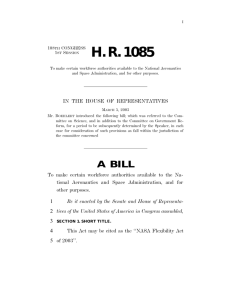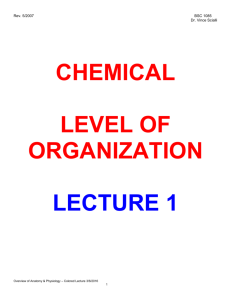Some positive numbers add up to 19
advertisement
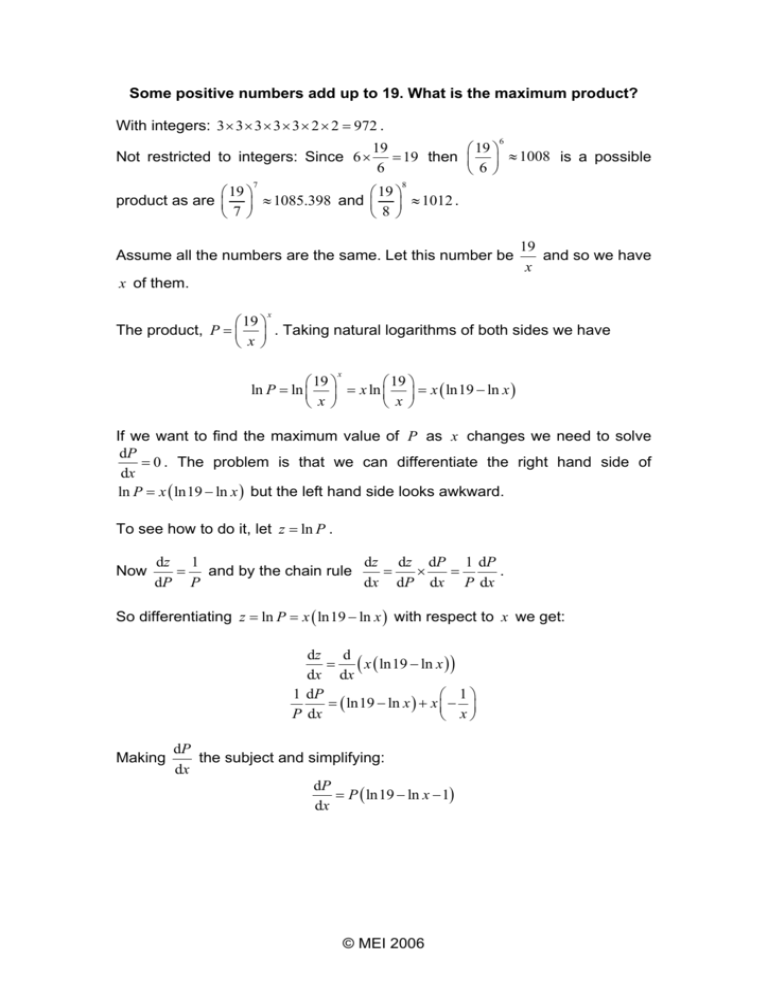
Some positive numbers add up to 19. What is the maximum product? With integers: 3 3 3 3 3 2 2 972 . 6 19 19 Not restricted to integers: Since 6 19 then 1008 is a possible 6 6 7 8 19 19 product as are 1085.398 and 1012 . 7 8 Assume all the numbers are the same. Let this number be 19 and so we have x x of them. x 19 The product, P . Taking natural logarithms of both sides we have x x 19 19 ln P ln x ln x ln19 ln x x x If we want to find the maximum value of P as x changes we need to solve dP 0 . The problem is that we can differentiate the right hand side of dx ln P x ln19 ln x but the left hand side looks awkward. To see how to do it, let z ln P . Now dz 1 dz dz dP 1 dP . and by the chain rule dP P dx dP dx P dx So differentiating z ln P x ln19 ln x with respect to x we get: dz d x ln19 ln x dx dx 1 dP 1 ln19 ln x x P dx x Making dP the subject and simplifying: dx dP P ln19 ln x 1 dx © MEI 2006 dP 0 . Since we know the product P 0 dx 19 then we need to solve ln19 ln x 1 0 . This is equivalent to ln 1 and so x 19 e. we require x The maximum value occurs when x 19 Therefore the maximum product is P e e 1085.406 , slightly bigger x 19 7 19 than 1085.398 . 7 But there’s a problem. We were asked to split 19 up into ‘some numbers’. Doesn’t this mean that we have to have, for example, 5 or 6 or 7 numbers 19 6.9897 lots of e ? Can you really split 19 up into 6.9897 parts, rather than e or even into 6 12 parts for that matter? The sensible way to interpret the problem is that we do need a whole number of numbers so the best way forward seems to be to use 6 lots of e and the remaining number will then be 19 6e 2.69031 . The product of these seven 7 19 numbers is then e 19 6e 1085.348 but this is less than 1085.398 . 7 19 So does seven lots of generate the maximum product? 7 6 © MEI 2006
